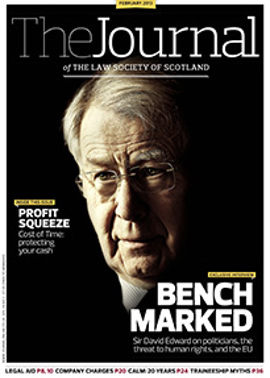Master your mail
Using email effectively to reduce stress
Excessive amounts of email can cause severe stress. A survey by Glasgow and Paisley Universities in 2007 found that 62% of workers are stressed or feel under pressure due to the number of emails they receive.
Workers spend an average of 25% of their time on email; but 50% of that time is wasted.
Emails which cause stress are often those where there is no clarity regarding the action required from the recipient, or which include too many subjects, or are very long, are unnecessary, or which are flagged as urgent when they are not. Using email carefully and effectively can help prevent stress for yourself and your colleagues.
In the professional environment, it is particularly important to think carefully about any email you send and what it says about you and your firm. In particular, bear in mind the following points:
- When copying email to a third party, or a group of people, consider using the BCC (blind carbon copy) field. Failing to do so means that every person receiving the email has access to every other person’s email address, and you probably don’t have permission to disseminate that information.
- Pay attention to your grammar, spelling and punctuation. The person you are writing to may not know you personally, and may subconsciously judge your intelligence and level of education on the composition of your email. Poor command of the language gives a bad impression.
- When forwarding or sending anything, check to see what appears underneath your signature. If you have played “email ping-pong” with a colleague there could be a considerable correspondence included, which may include confidential or defamatory information.
- Keep emails brief and to the point, ensuring that the person receiving it knows exactly what is expected of them.
- Think about what the email you are sending says about you. It is extremely easy for your colleague to forward the dirty joke you sent him to your boss.
The oft-quoted “golden rule” of email is never to say anything in an email you wouldn’t shout across a crowded room. Stopping and thinking before you send any email can save a lot of problems later.
Levels of alcohol abuse falling but hospital admissions rising
The latest figures from the Office of National Statistics show that although the levels of alcohol abuse have been falling since 2004, alcohol related hospital admissions rose 11% in 2012 over 2011 figures. It is thought that this is because those who drank heavily in the decades prior to 2004 (and who may well still be drinking) are now suffering the after effects of their years of abuse.
LawCare uses a very simple test to judge whether an individual has a problem with alcohol. If alcohol causes you problems at home, at work, or elsewhere, and yet you continue to drink, you have an alcohol problem.
A bad month
As at 30 January, LawCare had opened 72 case files from struggling lawyers who had called the free and confidential helpline. Although January is often a busy month on the helpline as lawyers return to dark, gloomy offices following the Christmas and New Year festivities, this is by far the highest number of case files opened in a single month since LawCare began. The next highest number is 58 case files opened in July 2009. As yet the reason for this increase is unclear.
In this issue
- Know your protection
- The Journal Annual Index 2012
- Rights around corroboration
- Cadder and common law fairness
- Age-old questions
- Master your mail
- Reading for pleasure
- A simple guide to arbitration for non-contentious lawyers
- Opinion column: Tim Haddow
- Book reviews
- Profile
- President's column
- Legal aid: another look
- Early warning system...
- Holding back the state
- It's all about cash...
- Charges changing
- Keep CALM and carry on
- Getting in quick
- Views of children
- More change. Less law?
- Forward, though I canna see...
- Scottish Solicitors' Discipline Tribunal
- Bankers: a breed apart?
- Ruaig an Fhèidh: 3
- The other alternative
- Risk refresher
- Ask Ash
- Law reform roundup
- Judge's conflict of interest warning
- How not to win business: a guide for professionals
- From the Brussels office
- Sent in error






